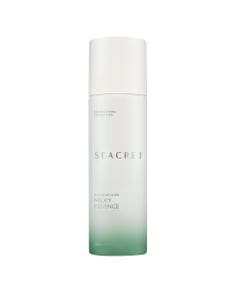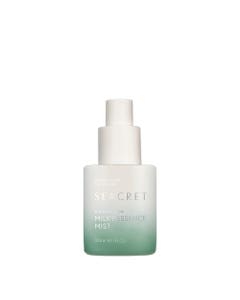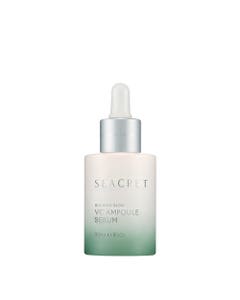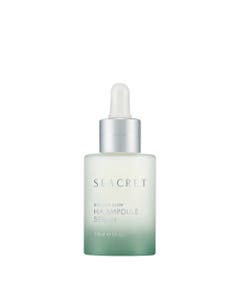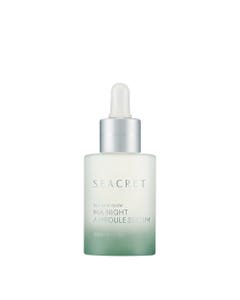
A clinical study performed by Ashland Specialties Research Center located in the Sophia Antipolis Technology Park in France confirms the effectiveness of Seacret Ferment 21 broth on skin regeneration and turnover.
Conducted in April 2019, the purpose of the study was to evaluate in vivo (on real, live human skin) the beneficial effects of the application of Seacret’s new Ferment21-containing skincare formulas, particularly when it came to skin barrier function, global anti-aging and pre-biotic effects.

Measurements
Over 9 days, five volunteers between the ages of 28 and 40, with a mean age of 35.8, applied Seacret’s Ferment21 cream on their thighs. It was a double-blind comparative study against placebo – meaning, any and all information that might affect the behavior of the researchers or the volunteers was withheld until after the study was over. The placebo was the same skin care formula but without Ferment21.
The volunteers applied the Ferment21 creams twice a day, morning and evening, at a dose of 2 mg/cmZ. Ashland researchers weighed the bottles before each volunteer’s very first application and then at the end of the study in order to measure and verify the real quantity applied.
Why Ferment21?
Ferment21 is Seacret’s newest skincare innovation. It is based on a bio-fermentation process including Dunaliella Salina – a salt-tolerant, single-celled microalgae that has survived the extreme conditions of the Dead Sea. Until 1905, that is until Dunaliella Salina was discovered, it was believed that no life could exist in these waters, hence its name, the “Dead” Sea.
Today, researchers know that the metabolically flexible Dunaliella Salina takes up minerals to sustain its growth. As part of Seacret’s Ferment21 bio-fermentation process, Dunaliella Salina is grown in the dark with readily available food sources for cellular uptake and metabolic processes. Eliminating the light requirement, this heterotrophic process minimizes the energy needed for Dunaliella Salina’s survival, thus significantly increasing its growth rates of cell mass.
To recreate an even more optimal environment of growth, Dead Sea salt is added. Dead sea salt contains different minerals, and it’s particularly rich in calcium, magnesium, chloride, and potassium. There are 21 minerals in total. In the fermentation process, Dunaliella Salina takes up these essential minerals, hence the name “Ferment21.”
When added to skincare formulas, Ferment21 could provide potent skin-transforming properties – to test this hypothesis, Seacret turned to Ashland researchers.
Results of the study
After only 9 days of Ferment21 cream application, the April 2019 study results indicated a quicker disappearance of skin DHA staining on the sides of the volunteers’ thighs treated with Seacret’s Ferment21 compared to the placebo sides. This disappearance demonstrates improved skin regeneration and turnover.
The researchers also took color photos before and after the treatment and the results could be observed visually in the pictures. A higher skin luminance was easily noticeable compared to the placebo cream.
Today, Seacret’s Ferment21 is available in several skincare formulas from facial serums and moisturizers to targeted eye treatments, offering accelerated skin regeneration and luminosity, making them a powerful anti-aging treatment.

